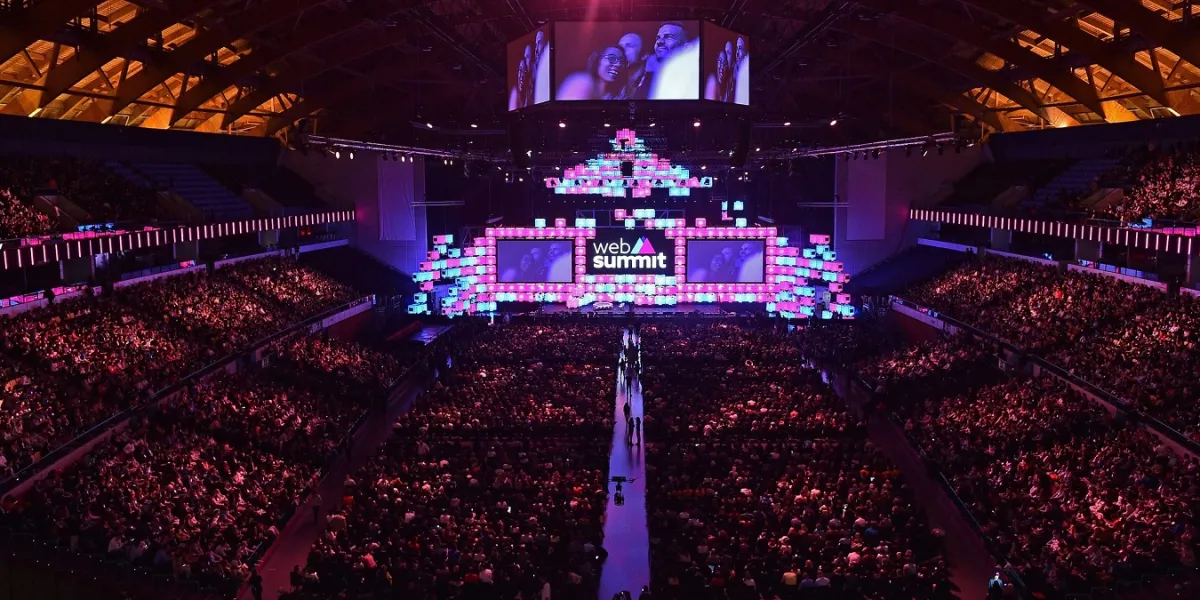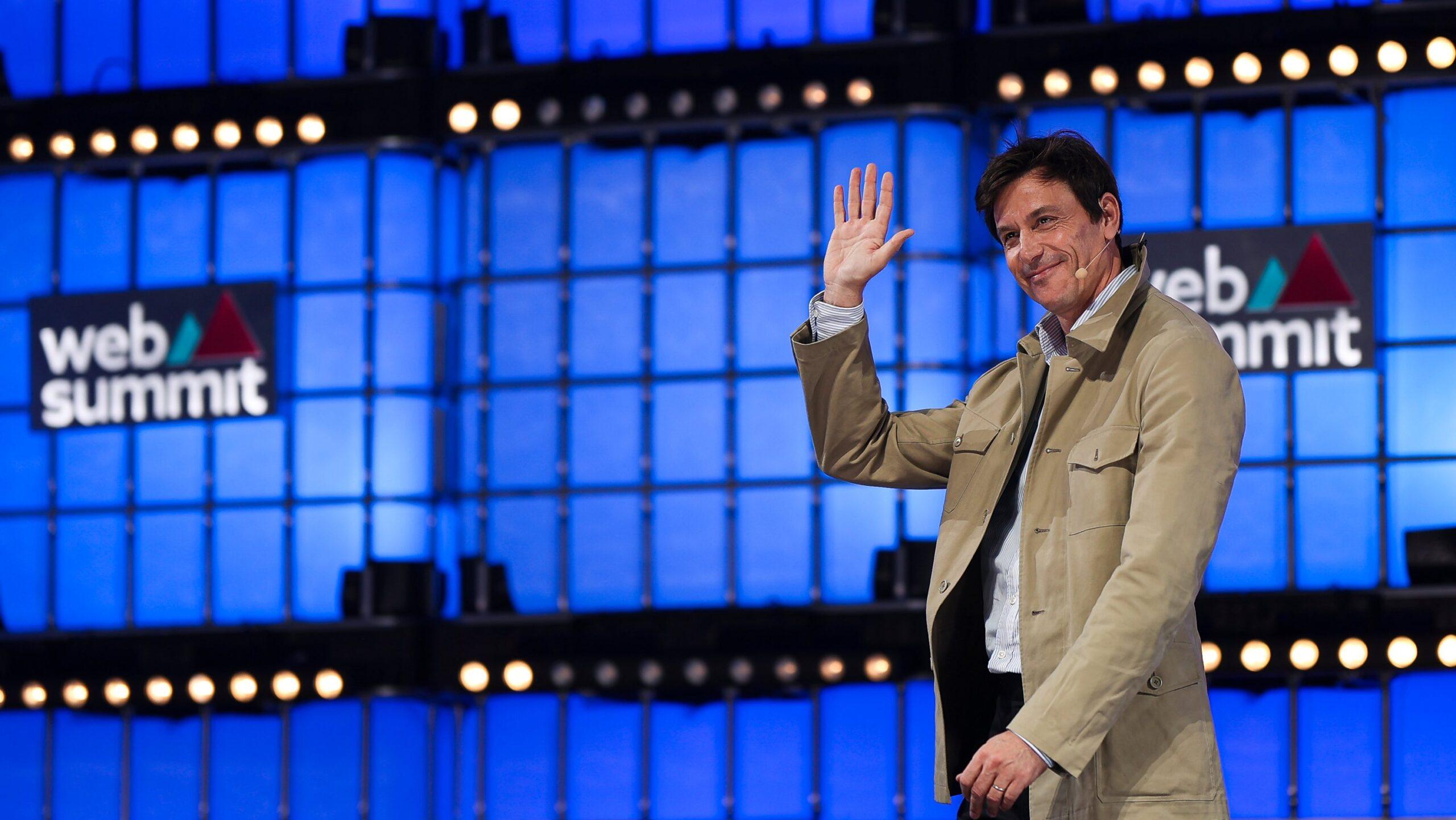More than 70,000 attendees gathered in 2022 in Lisbon, Portugal, to connect, learn, and be inspired by tech leaders, policymakers, investors, and game-changers across all industries touched by tech. The GEM (GlobalEdgeMarkets) Team was also there to look for amazing founders, savvy investors, and corporate innovators – real GEMs.
At Web Summit 2022, we were thrilled to see many innovative and game-changing ideas emerging. From tech startups presenting their latest creations to corporate leaders sharing their cutting-edge solutions and seeking innovations to augment their product lines, there was no shortage of creativity and ingenuity at this year’s conference.
But will this satisfy all the parties, namely investors, founders and corporate innovators? Do events like WebSummit 2022 promise true collaboration, deal-flow dynamics, innovation breakthroughs, and increased opportunities for all?
Let’s find out.

Here are our top 5 observations from this year's event:
Web3 and Enterprise Metaverse will continue to capture the attention of investors, corporation innovators, and founders. The differences between Web3 and Metaverse will become more apparent in the Enterprise, according to Yves Bernaert of Accenture, Dominique Pouliquen of Cintoo, and Jason Aten of Inc. Magazine. While the metaverse and Web 3.0 aren’t the same things, they aren’t competing versions of the future internet — one, both, or neither of them could come to fruition, and there could be some overlap.
As blockchain becomes more mainstream, the decentralized nature of transactions will put even more pressure on the enterprise to think differently, both internally and externally. For the entire C-suite, it becomes a powerful opportunity to think differently. As the virtual and decentralized concepts of metaverse and Web 3.0 unlock new possibilities for customer experience and business value, companies will embrace the opportunity for production-based processes.
Virtualization will continue to develop, and enterprises will likely find real business applications of the metaverse and Web 3.0 in their domains. Virtual and predictive management of manufacturing, maintenance, supply chain, and more are likely to scale quickly so that Enterprise leaders may find collaborators cross-functionally.
War, Technology, and Humanity
First Lady of Ukraine, Olena Zelenska, became a guest of Web Summit 2022 – the most prominent European technology conference dedicated to modern breakthrough technologies in the IT industry. The speech of the President’s wife on the summit’s main stage marked its opening.

#russia has put technology at the service of terror since the beginning of the full-scale invasion of Ukraine in February of 2022.
“On the Russian side, IT specialists are engaged to carry out terrorist attacks on Ukrainian cities. Previously, they worked in private IT companies. That’s what I’m talking about: there’s a frontline going through your sphere, too — the struggle between evil and good. Between the aggressor and the ones who simply defend their home,” she said.
Unlike the aggressor, Ukraine wants to use all possible technologies to save people. Therefore, according to the First Lady, the state is strengthening cyber security, ensuring the stability of all digital systems of both the public and private sectors. Hence, the President’s wife emphasized that those present at the summit can be extremely useful to our country in its technological resistance. (Source – WebSummit2022 and Office of The President, Ukraine).
Is this a great example of your organizational risk management or disaster management strategy? Can you imagine how your tech can perform in disruptive conditions? Learn more about it from our Podcast Series: ENTREPRENEUR, DISRUPTED!
Additionally, Mykhailo Fedorov, Minister of Digital transformation, Ukraine, presented several ideas and case studies of how drone tech, cybersecurity tech, face recognition, artificial intelligence, and other technologies are aiding the Ukrainian Army and National Guard in finding murderers, decoding satellite maps, combatting misinformation, identifying the dead, and reuniting refugees with their families.
Women in Tech
- Women in the tech sector formed a significant part of this year’s WebSummit, of which forty-two percent of the 70,000+ attendees were female. The conference was largely focused on the growing trend and need for more women in the tech industry.
- Notable female speakers included Lorraine Twohill, CMO at Google; Julia Hartz, Co-founder and CEO at Eventbrite; Lisa Jackson, Vice President of Environment, Policy and Social Initiatives at Apple; Sarah Friar, CFO at Square; and Anjali Sud, CEO at Vimeo.

One female founder who spoke on stage about why startups need more women in tech was Amanda Maiwald, Co-founder and CEO of Codary, a German-based computer programming lessons platform for children:
As a tech founder, I form part of an outrageously unrepresented group, women in tech. Did you know that only twenty-five percent of tech employees identify as female, while only twenty percent of startups have one woman on their founding team? Why should you care? You should care because it is harming your company.”
Amanda Maiwald
She later outlined suggestions for tech companies to close the gender gap:
If you are serious, you need to hire more women and set a quota. You also need to evaluate your job advertisements- most ads attract men through images and adjectives. Thirdly, you need to offer flexibility and help women in your company network and join speaker panels to help show there are more women in power in tech startups. We have a massive gender gap in tech, and you all have it in your power to change that.”
Amanda Maiwald
Sustainability
Web Summit 2022 made it clear that the topic of sustainability is here to stay. With reports of e-waste mountains and toxic chemicals polluting the environment, it’s no wonder that consumers have been questioning the sustainability of the industry as a whole. But it’s not all doom and gloom — there are many companies working hard to change the way we think about tech and its impact on the environment, and that was evident on many stages at Web Summit.
One such company, Formula 1 (@F1), spoke on plans for becoming carbon neutral by 2030 by implementing innovative ideas such as remote work for car team mechanics.

Skyrora CEO Volodymyr Levykin made an inspiring speech about the future of launch and investment in space. Much like how SpaceX showed how to make launch more affordable, Levykin says that Skyrora is set on making launch more sustainable.
By using its ecologically sustainable rocket fuel, Ecosene, and hydrogen peroxide instead of liquid oxygen, this company is pioneering ways to reduce and eliminate their industry’s carbon footprint.

As the world’s largest tech conference, Web Summit has used its unique platform to shine a light on the importance of sustainability in the tech industry. Not only has sustainability gained more prominence at each summit since 2020, but Web Summit has also comitted to the Sustainable Development Goals of the United Nations’ 2030 Agenda for Sustainable Development as guiding principles of their own sustainability initiatives.
Artificial Intelligence
Artificial intelligence (AI) is one of the hottest topics in the tech world today, and Web Summit 2022 reflected that with edgy presentations and thought-provoking discussions. There were several companies showcasing their innovations in AI, such as cosine (@cosineBV), a leading worldwide company currently collaborating on the European Space Agency’s Earth Observation Φ-sat missi, which constitutes the first experiment to demonstrate how AI can be used for Earth observation – in this case, filtering out less than perfect images so that only usable data is returned to Earth. It intends to accelerate the future of Earth observation by means of transformational innovations.

Could the future of AI actually be less invasive? In one talk, the tech giant Amazon told attendees that it wants you to interact with its technology only when you need it, a stark contrast from past pursuits in tech.
Alexa head scientist Rohit Prasad explained how a philosophy of ‘ambient intelligence’ is driving the development of AI that blends invisibly into our environment, helping you when you need it and disappearing when you don’t.
One of the most endearing and hopeful conversations happened in a Q&A session with two teens from the Knowledge Society, which is a high school acceleration program that exposes high-performing teens to exponential technologies and some of the world’s largest problems.
The audience and speakers addressed some of the most pressing issues in today’s AI: ownership, limitations, ethics, inherent biases, and more. We left this forum with unwavering faith that we will be in good hands with youth like these forging the future of tech.





